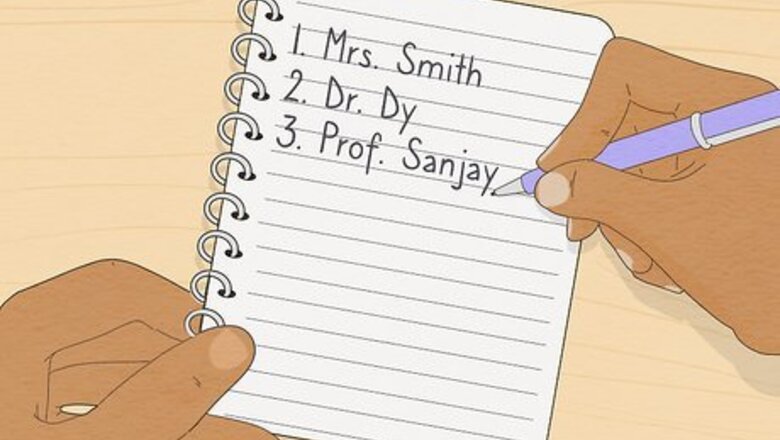
views
Finding Potential Recommenders
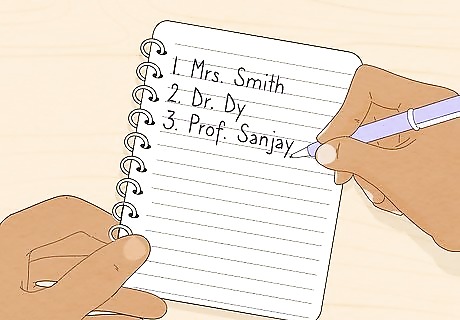
Write out a complete list of possibilities. Try to think of everyone who might be willing to write you a positive letter of recommendation in your particular field. Generally, places requesting letters of recommendation will ask for at least two and no more than three, but it's a good idea to think of a larger list, in case any of your ideal candidates don't work out. Try to come up with at least 5-7 possibilities.

Order the list. How you choose to assign "strength" to the candidates will be relative, but in general you want to find a balance between the familiarity of the letter writer with you and your work, and that letter writer's standing in the field. While you might have had a better relationship with a co-worker or a TA for one of your classes, a letter from them may be less desirable than from a supervisor or a Professor who also knows your work, but may need some reminding.
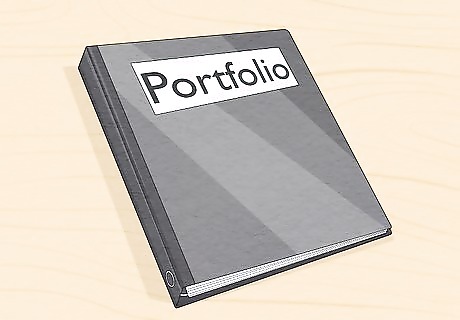
Aim high. Consider collecting profiles or portfolios of your work to share with potential recommenders who may be less familiar with you and what you do. This is a good way to make contact with a successful person in your field and shows initiative. The easier you make their job, the more likely the candidate will be to do you the favor.
Asking for Academic Letters

Collect all the information about both the institution and the application to provide to your letter writers. This means you should be nearly complete with the application and be able to provide the supplementary materials to the letter writer for reference. This may include: Copy of your transcript Writing sample or portfolio of work Statement of purpose or cover letter Curriculum Vitae or resume Name of the institution Degree or fellowship program applying for Name of the contact at the institution receiving the letter Address and dates for sending the letter Any necessary letter forms, prompts, or the URL to complete and upload the letter

Make contact. Tell the most desirable candidates on your list that you hope to use them as a reference, in person if possible. Inform them of the general guidelines, due dates, and provide them with the necessary resources at this time.

Gauge their willingness. Ask directly whether or not they're willing to write you a positive letter of recommendation. If not, or they're unsure of whether or not they'll have time to complete it, move to other candidates on your list.
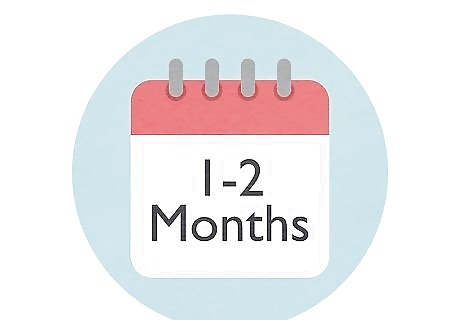
Be timely. Professors and academic advisors are generally happy to provide recommendations and consider doing so part of their professional responsibilities. However, because of the sheer volume of requests they receive, you should be sure to request the letter of recommendation well in advance of any admissions application or other deadlines. A good rule of thumb is making first contact a semester ahead of time to gauge their willingness to write a letter, and then making sure they have all materials at least a month or two before the deadline.

Follow up and keep in touch. Thank your references for providing letters with a note or phone call. Also, it's a good idea to keep them updated on your progress. They have a stake in your success, so let them know if you've been offered a spot at the university or program. This will also keep the door open if you need more letters somewhere down the road.
Asking for Workplace Letters
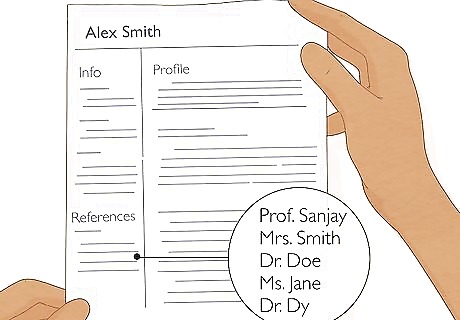
Provide only the names of professional references to potential employers. This may include former supervisors, co-workers, or subordinates as appropriate. Potential employers do not want personal references, such as from friends or family. If you are a recent graduate with little related professional experience in your field, recommendation letters from former professors and academic advisors will carry more weight than letters from former supervisors or co-workers in jobs you may have held that are unrelated to the position you seek.

Give your reference the information that they will need to prepare a well-organized letter of reference. Make sure your reference has the name, title and full address of the individual to whom the letter of reference will be directed. You may also want to provide your letter writer with a work sample or portfolio, if necessary. Give your reference a description of the job for which you interviewed so that he or she can tailor the recommendation letter to address the qualifications and expertise necessary for the position. If a hard copy of a letter of recommendation will be submitted rather than an electronic version, provide your reference with a pre-addressed, pre-stamped envelope as a courtesy and to expedite the mailing of your letter of recommendation.
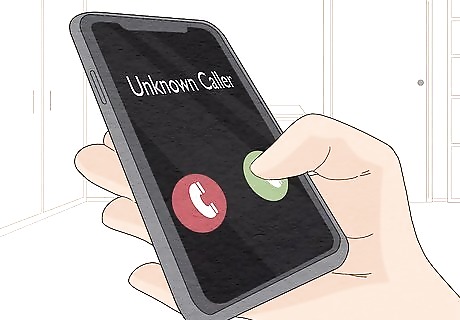
Keep references aware of potential calls. If the hiring manager for the job for which you are applying will be calling your references rather than requesting a recommendation letter, then give your reference a heads up to expect such a call, including the name of the person who will be calling. If you've already interviewed for the position, let your references know what kinds of questions were asked of you, so they might know what to expect from the call.
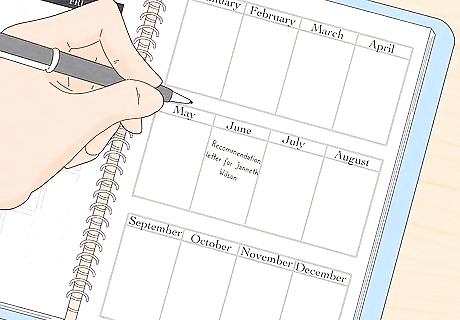
Be sure to give your reference enough lead time to prepare a well-crafted letter of recommendation. Even if you're just starting to think about applying for a new job, you'll know ahead of time this will be a necessary step in the hiring process. Make contact as soon as possible and get back in touch when you have firm dates.

Follow up. Thank your recommender for giving you a good reference with a lunch date or small gift. Keeping them abreast of your successes also ensures that you've got a good business contact in your field, someone who has a stake in your success.













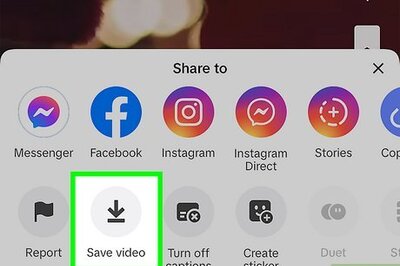





Comments
0 comment